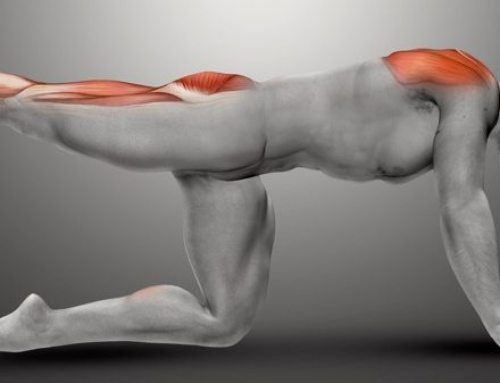
The Brain Fitness Frontier
By Dr. Angelina Stevens
Yes, it is time we start flexing our axons and pumping our dendrites. Our brain health is not something we think about until it begins to fail or deteriorate.
It has been amazing to watch the progression of my best friend, Robyn, who recently sustained a brain injury in a head-on car collision. While suffering with seizures, headaches, and memory and speech loss, Robyn is regaining her health while still managing to care for her two young children.
Can you imagine spending a day with a 3-year-old and 7-year-old without being able to speak or give directions? I know parents whose heads are exploding at the thought. However, the miracle of the human body and our innate drive to be well has allowed Robyn to create new brain pathways to adapt, communicate, and emerge a stronger, wiser woman. The more pathways created in the brain, the more “neuroplastic” and fit it becomes, meaning more of our brain gets accessed and utilized. The more brain fitness we have, the less apt we are to suffer from memory loss, sleep disorders, depression, and Alzheimer’s disease.
<
Your Brain Explained
The brain is the motherboard for every activity in the body, from moderating respiration, to generating brain chemicals (neurotransmitters), to receiving information from receptors all over the body. This is a complex system of nerves, neurons, fat, and cells, and at best we access and use only about 10 to 15% of our brains.
After peak development at age 25, the brain begins to slowly shrink. Some research has suggested that the male brain shrinks faster than the female one. Smoking, drug or alcohol abuse, and brain injuries from risky sports all have the potential to disrupt brain development, sometimes permanently.
<
The brain is divided into the left and right hemispheres, or halves. The left side is often known as the detail-oriented, organizing, multitasking, speech-and-happiness center, while the right side is known as being more creative, emotional, and the big-picture processing center. Most of us live dominantly in our left brains, which can lead to anxiety, depression or insomnia, without stoking the right side with art, music, creativity, or meditation.
There are four distinct lobes of the brain (frontal, occipital, temporal and parietal) that produce neurotransmitters that affect everything from our mood to our reaction speed. Through progressive lab testing, we can now measure neurotransmitters excreted in urine to determine natural alternatives for depression, insomnia, anxiety, ADD/ADHD, and memory and mood disorders. The main neurotransmitters and functions are:
- Dopamine – Concentration, learning, behavior. Major deficits with Parkinson’s disease and excessive amounts with schizophrenia.
- Serotonin – Sleep, mood regulation, satiety. Low levels with depression, insomnia, and obesity.
- Epinephrine/Norepinephrine – Fight or Flight Response. Increases heart rate and muscle contraction; opens airways. Low levels with chronic fatigue, depression, and ADD/ADHD.
- Gaba – Calmness, sleep and mood regulation. Deficits show anxiety, insomnia, TMJ/teeth grinding.
- Acetylcholine – Short-term memory, learning, synapse plasticity, muscle stimulation/contraction. Major deficits with Alzheimer’s and dementia, and learning disabilities.
Train Your Brain
A vegetable-based diet that is high in alkalinity and antioxidants can neutralize harmful free radicals that cause aging and degeneration in the brain. An alkaline diet helps also to discharge excess acids from the bloodstream and further diminishes the reproduction of harmful cells and other disease processes such as diabetes, cancer, arthritis, and heart disease.
Proper fats, in particular omega-3 fatty acids, are essential to strengthening nerve pathways in the brain and body, improving memory and focus, and alleviating depression and mood disorders. Our brain is mostly made of fat, is cushioned by fat, and sends and receives messages on fatty myelin sheath all throughout the body. Maintaining proper body fat levels is particularly important to endurance athletes who restrict calories or have a low body-fat percentage as this can be damaging to internal organs as well as optimal brain functioning.
Nutrients such as B-complex, vitamin D, folic acid, trace minerals, choline, Co-Q10, and lecithin help with the daily functioning of our brain. Herbs like bacopa and gingko can also help increase blood flow to the brain, which helps improve memory, focus and concentration. Before adding in any new vitamin or herbal supplement, you should consult with your doctor, as some may react with certain medications.
<
Aerobic exercises like running and biking are immediate and obvious stress relievers. Yoga and meditation can balance out neurotransmitters as well as right/left hemispheric dominance, which can alleviate moodiness and depression. Engaging in new sports and other activities, meeting new people, and traveling to new places also opens up new brain neural pathways and increases our excitement in life.
Taking an art class, playing chess or Scrabble, and getting adequate sleep also improves brain fitness and keeps the stress meter low. Cutting-edge light therapy with the cold laser has been helpful in increasing proper melatonin production for sleep, and in recovery from brain injury and stroke.
A few days ago I received an e-mail from my dear friend Robyn, who is improving every day and is now expecting their third child. It included a quote by author and researcher Emerson Pugh: “If the brain were so simple we could understand it, we would be so simple, we couldn’t.” It took me a few minutes to get it, if you know what I mean.
Yours in Health and Fitness, Dr. Angelina Stevens
# # #
Dr. Angelina V. Stevens, D.C., owns holistic chiropractic and acupuncture centers in Durham and Chapel Hill. She is passionate about healing the body naturally without the use of drugs or surgery and by finding the true causes of pain and illness. As a triathlete, Dr. Angelina has completed in world-class events and has represented the U.S. as a triathlete on Team USA 2001. She currently competes as an elite cyclo-cross racer and can be reached at www.stevenswellness.com or by e-mail at drangelina@stevenswellness.com.





